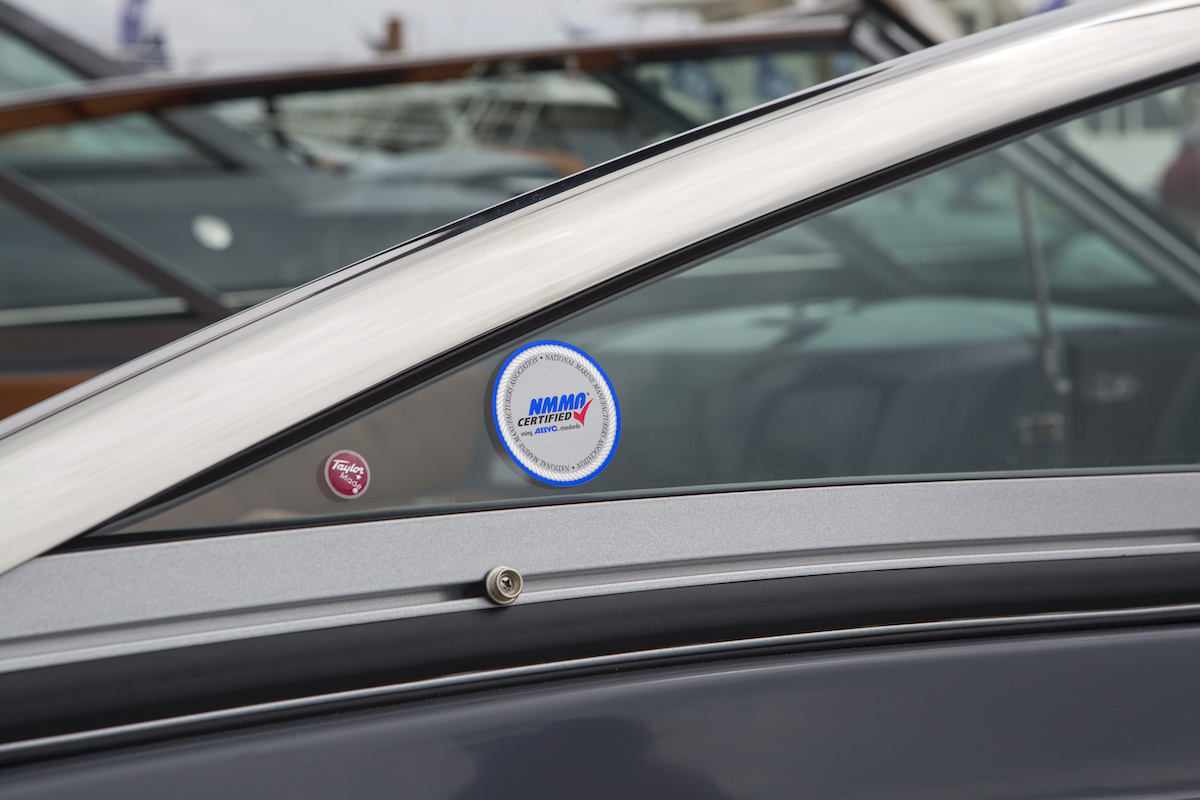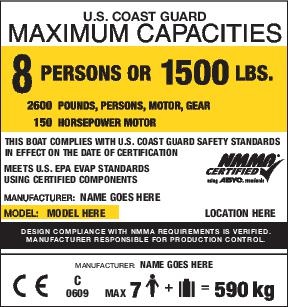Eighty five percent of the vessels sold to recreational powerboaters are National Marine Manufacturers Association (NMMA) certified boats—but that also means that 15-percent of the boats on the market today are not. And making sure the boat you buy is certified is a no-brainer.
What is a Certified Boat?
Most people know that the US Coast Guard has minimum requirements established for all boats built and sold in the country, but these are just bare minimums. NMMA certification goes way beyond those federally regulated requirements.
- To get certified means there are third-party, hands-on inspections of the boats, inspector visits to manufacturing facilities, and specific standards and benchmarks are met to ensure you get top quality and the highest safety levels in your new boat.
- NMMA certification is a voluntary program, so when you’re looking at a certified boat you also know that the manufacturer has chosen for itself to go well above and beyond the bare minimums dictated by law.
Just what does certification take into account? If you can stand on a boat and point to it, the inspectors have probably checked it out. Virtually all of a boat’s systems ranging from electrical to steering to plumbing gets the hairy eyeball. And they all have to meet a set of standards set by the American Boat and Yacht Council (ABYC).
ABYC is a non-profit organization established all the way back in the 1954 to develop safety standards for the design, construction, maintenance, and repair of recreational boats. It also provides technical education, training, certification, and professional development to the boating industry, and its experts annually review the standards and technical information as new tech comes into the market and new boats evolve. In fact, ABYC has over 400 volunteer marine professionals on 16 technical committees, from all corners of the industry, the US Coast Guard, and trade organizations.
How to Find and Identify a Certified Boat
How do you know if a boat you’re looking at is certified? First off, look for the NMMA Certified logo. You’ll find it on the boat’s capacity plate (or yacht plate, in the case of larger boats), and often you’ll see it displayed on manufacturer’s websites or printed materials.
Another way you’ll know if a boat is certified is if you find it here, at Discover Boating. All of the boats listed in our Explore Boats section and all of the manufacturers appearing in our listings of Boat Brands and Manufacturers are certified.
Plus, if you attend an NMMA boat show, the boat show guide will usually indicate which boats on display have met certification standards and procedures.
Explore Certified Boats in the Boat Finder
Owning an NMMA Certified Boat
Obviously, above and beyond everything else, having a higher bar set for safety is the most important thing about owning a NMMA certified boat. But there are other advantages that also go along with certification.
- Studies have shown that NMMA certified boats are seven times less likely to be recalled by the US Coast Guard, as compared to uncertified boats.
- Certification even goes beyond the boat itself in some cases, extending to trailers, PWCs, and even marine oils. Again, when you use certified products, you can have a higher level of confidence in their safety and quality.
- It’s important to also point out that after a boat leaves the factory and gets sold by a dealer, it leaves their control. As a result, if you buy a used boat that’s been repaired or upgraded at any point in time, you can’t assume with certainty that the work was done to certification standards.
While the vast majority of the marine professionals out there doing repairs and upgrades certainly work to the best of their abilities with safety always in mind, if you’re torn between buying new or buying used boats, this consideration should certainly figure into your calculation—only with a boat that’s never been repaired or modified can you be completely confident that everything aboard is certified.
Finally, remember that manufacturers building to NMMA certification standards always have a point-person (or people) who know the standards inside and out, and communicates the requirements to the rest of the team. These people attend compliance training seminars biannually, and are even tested to make sure they have a firm grasp on all the details. Naturally, they’re present when the inspectors show up. But more importantly, after the inspector leaves and boat after boat gets built, there’s always someone around who’s familiar with the standards and can spot potential problems before they turn into issues.
The bottom line? An NMMA certified boat is a safer boat, no ifs, ands, or buts about it—and that means you can have more confidence when buying one.
Read Next: Working with a Boat Dealer
You Might Also Like:


